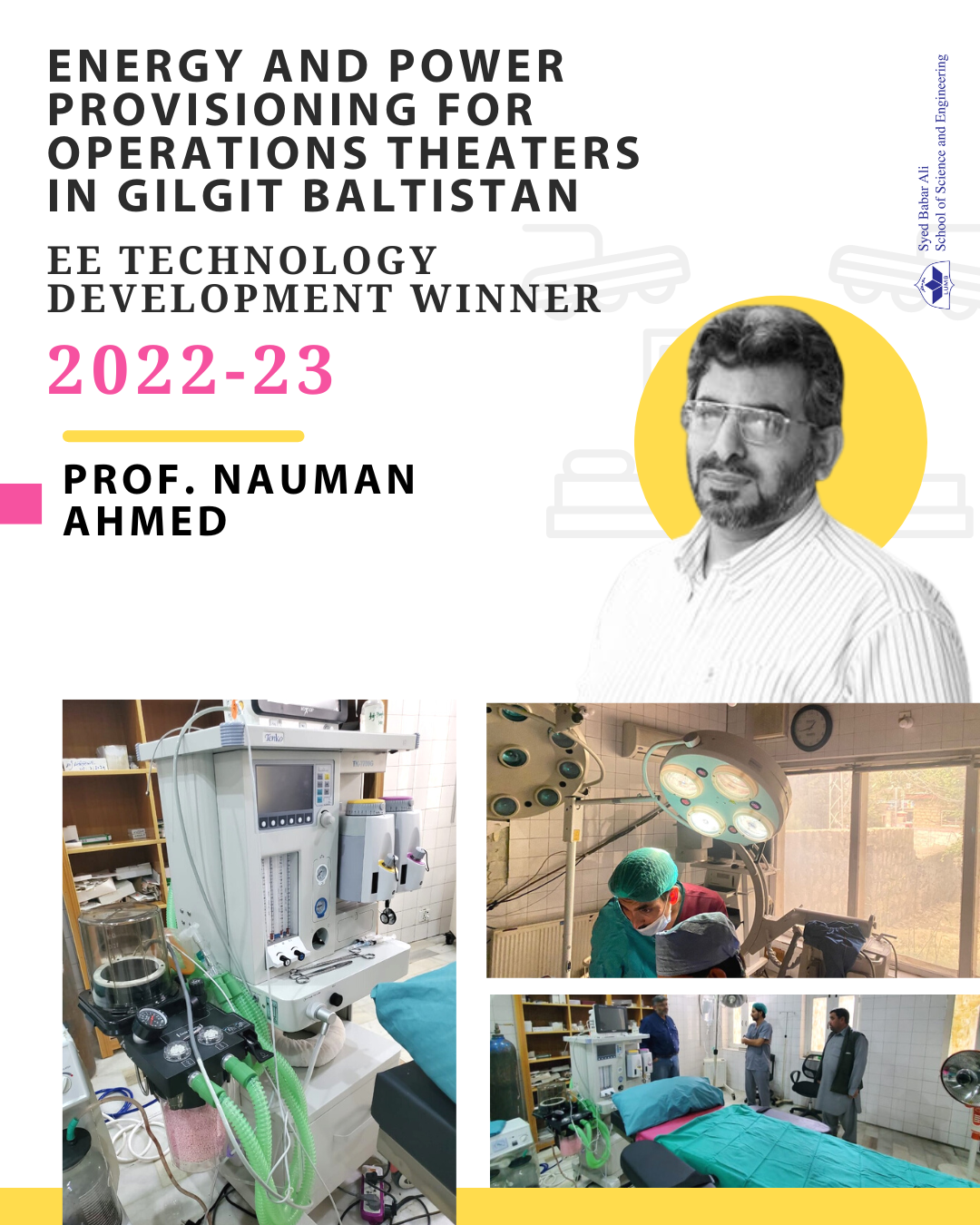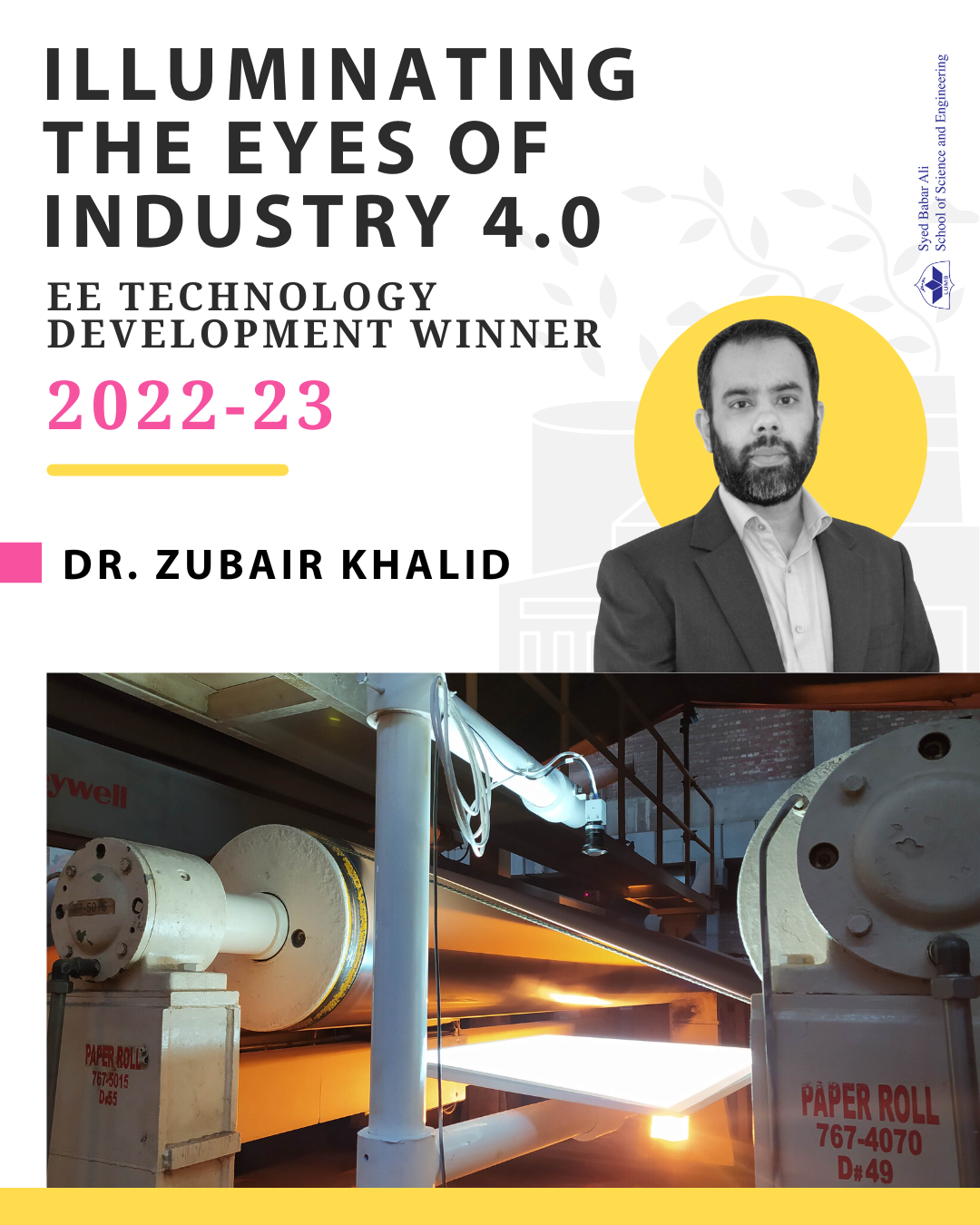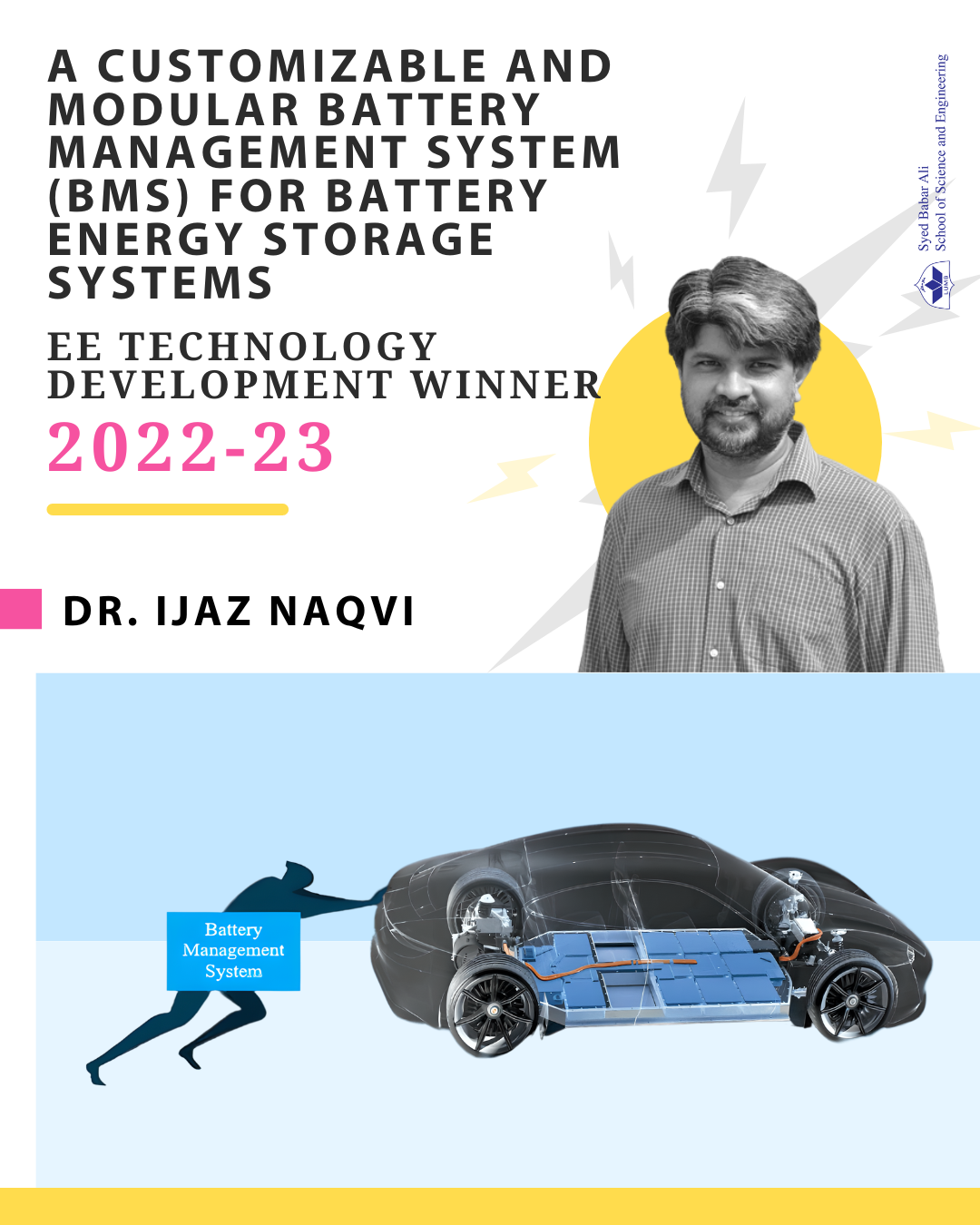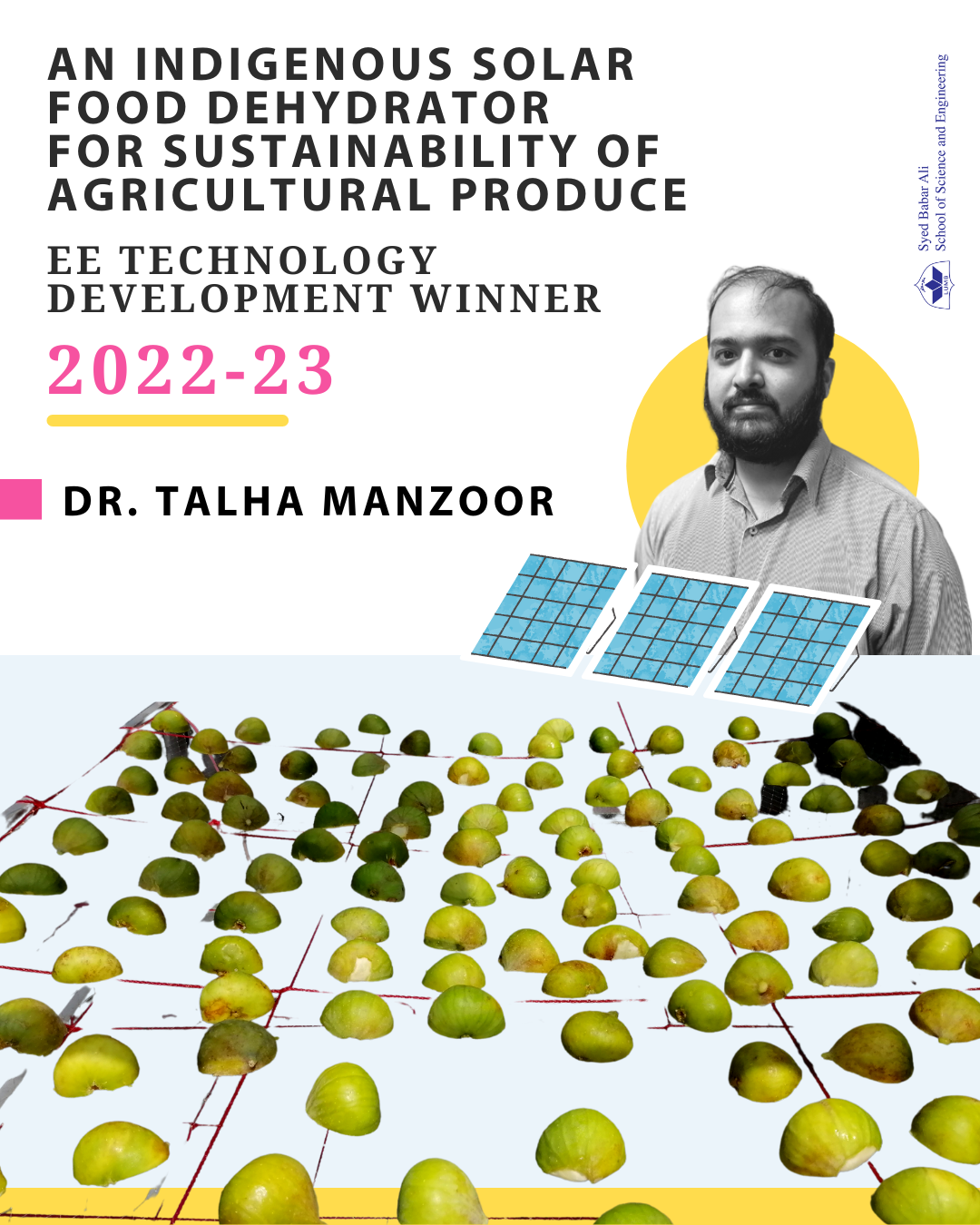Technology Product Development Fund
Department of Electrical Engineering - TPDF Call for proposals 2022-2023
Technology Product Development Fund (TPDF) is to support the triple helix innovation model to solve local and global challenges. Led by the Department of Electrical Engineering, the TPDF is set up as an accelerator fund to take academic research outcomes to the next stage for productization and commercialization, leading to local job creation, indigenous, high-value-added products, increasing exports of high-value-added products and reversing the de-industrialization of Pakistan. TPDF will provide a long-term sustainable platform and connect innovative minds to local industrial partners for the commercialization of prototypes and solutions related to the following focus areas:
- Electronics & embedded systems
- Renewable energy and smart power grids
- Industrial automation and intelligent systems
- Biomedical devices and systems
- Green technologies for sustainability and the environment.
Recently the 'TPDF call for proposals 2022-2023' evaluation committee has selected the following proposals for the funding:
Energy and power provisioning for operations theaters in Gilgit Baltistan
Prof. Nauman Ahmed Zaffar
The rural regions of Pakistan, accounting for more than 60 percent of the total population, have been facing severe energy access challenges. The load-shedding in main cities of Skardu, Shigar and Khaplu is more than 16 hours/day and the consumption is deliberately reduced by phase-curtailment to reduce grid voltage to 110Vrms per phase or lower. A custom solution has been designed at LUMS to address the challenges of continuity, reliability and quality of supply along with a lower total cost of ownership (TCO) through indigenous solution components. The designed solution is proposed to be deployed for the most critical use-case of hospital operation theaters in GB with Li-Ion batteries, custom battery management system (BMS) and temperature management system (TMS) along with UPS that can handle the power quality challenges.

Illuminating the Eyes of Industry 4.0
Dr. Zubair Khalid
Machine vision, referred to as eyes of Industry 4.0, allows the computers to visualize, understand and analyze the surroundings. We have developed a machine vision based solution for real-time and accurate web inspection of paper or fabric during the production process. Since the developed system is capable to detect the production defects in real-time, our solution serves as a quality barrier and is anticipated to automate the inefficient and manual process of surface inspection being used by the industries in Pakistan. The proposed activities will enable us to connect to local industries and to provide support to them in using machine vision technology to improve the reliability of the process and quality of the end products.

An AI camera trap for wildlife conservation
Dr. Murtaza Taj
Human-wildlife conflict is a running issue in the northern areas of Pakistan with significant economic and political impact. There is a need for innovative solutions to address this issue using real-time vision sensors to create an early warning system. In this proposal, we propose transforming our IoT AI Camera prototype into a market-ready product by redesigning it for Scalability and ease of adaptability. We aim to use this grant to achieve the key objectives of Scalability in terms of manufacturing and market growth. We will do this using our learnings from the earlier prototype versions, experience from the field deployment at Margalla Hills and Gojal, Gilgit Baltistan the ongoing stakeholder engagement.

A customizable and modular battery management system (BMS) for battery energy storage systems
Dr. Ijaz Naqvi
The emission of greenhouse gases into the environment threatens public health and climate. According to the United States Environmental Protection Agency (EPA), transportation and power sectors significantly contribute to greenhouse gas (GHG) emissions. Lithium-ion batteries, used in electric vehicles (EVs) and grid storage, can significantly reduce these GHG emissions. However, the performance of a Lithium-ion battery degrades over its lifetime, and its "health" deteriorates due to irreversible physical and chemical changes until the battery reaches its end of life. Proper monitoring and protection can prevent batteries from over charging and over-discharging and allows operation under the best possible conditions to reduce the rate of deterioration. A battery management system (BMS) is usually used to sense, monitor, and protect the battery packs. This project aims to use modular topology in BMS systems, in which multiple modular boards can be integrated to customize the BMS for diverse applications. Since the products built will be customizable and modular, it will attract customers/users working in the diverse areas of batter yenergy storage systems.

An indigenous solar food dehydrator for sustainability of agricultural produce
Dr. Talha Manzoor
Motivation for the project comes from real problems faced by domestic and commercial farmers in the Swat Region. It is very common for agricultural produce to go to waste due to logistical issues beyond control of the population. A case in point is the year 2007-2008 when the political situation prevented locals from shipping their produce outside the region which resulted in most of it being wasted. Floods, land sliding and natural disasters that effect transport infrastructure also cause similar problems. The project team has developed a prototype solar dehydrator, built indigenously, and capable of servicing the needs of domestic users, and small to medium businesses in the locality. Support from The Technology Product Development Fund will enable the project team to carry out the necessary upgrades in the prototype that will greatly accelerate the commercialization of the product. Specifically, the funds will be used to develop an automatic regulation system for temperature and humidity, which will speed up the dehydration process. The project team strongly believes that if successfully commercialized, apart from providing economic security in the face of logistical disruptions, the dehydrator also has the potential to solve several related problems outlined in the text that follows.


